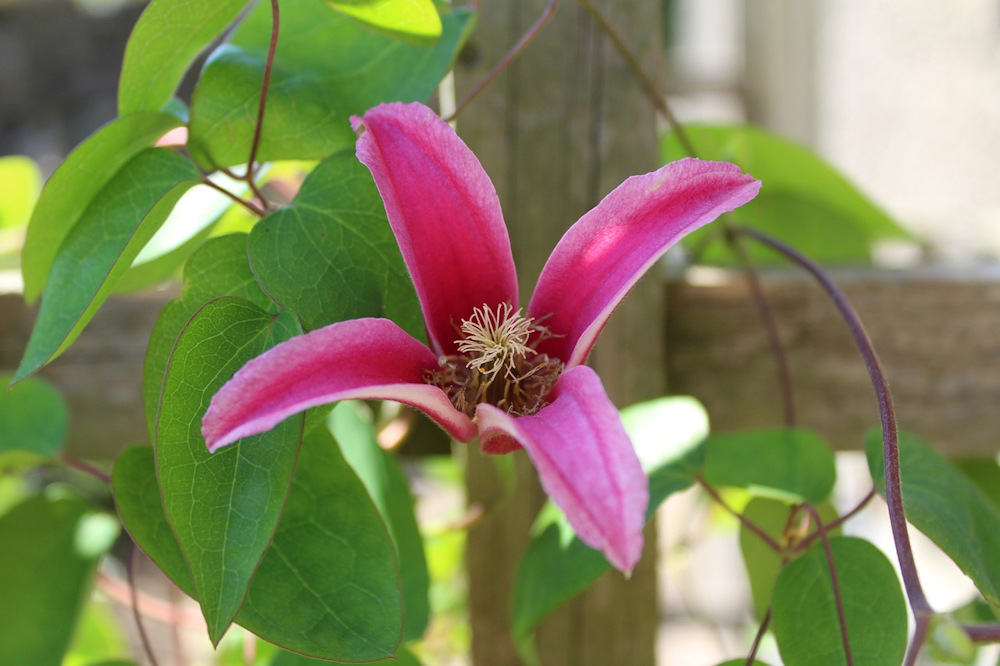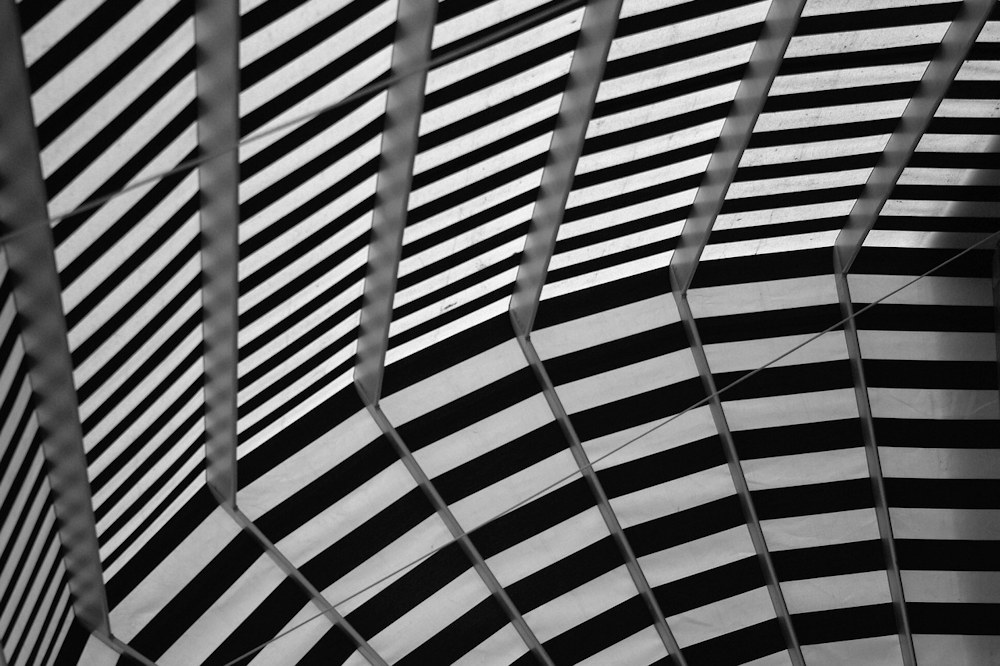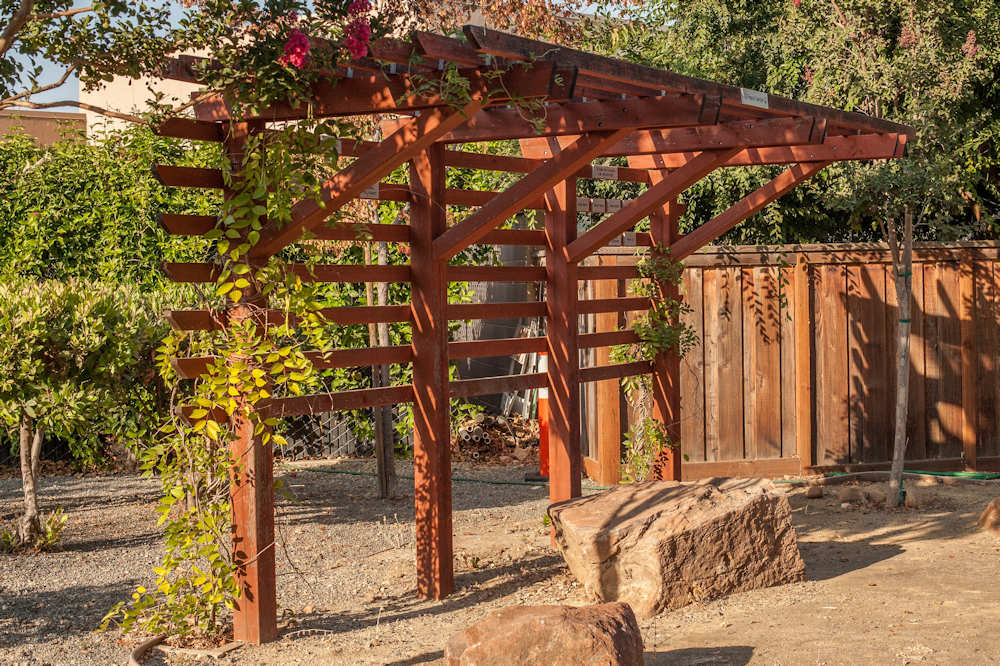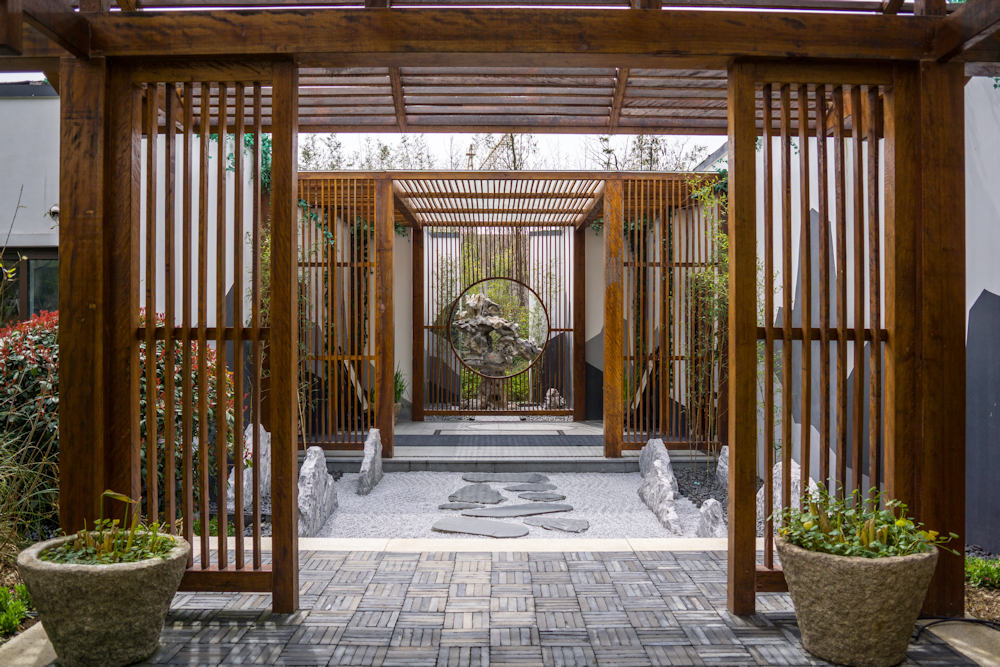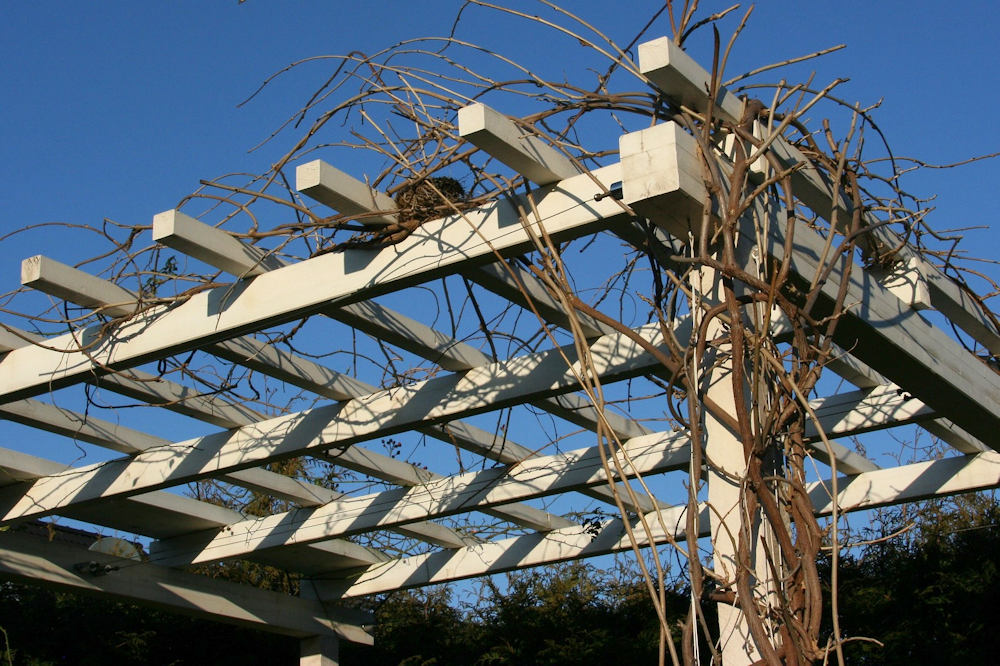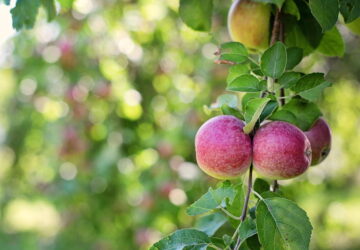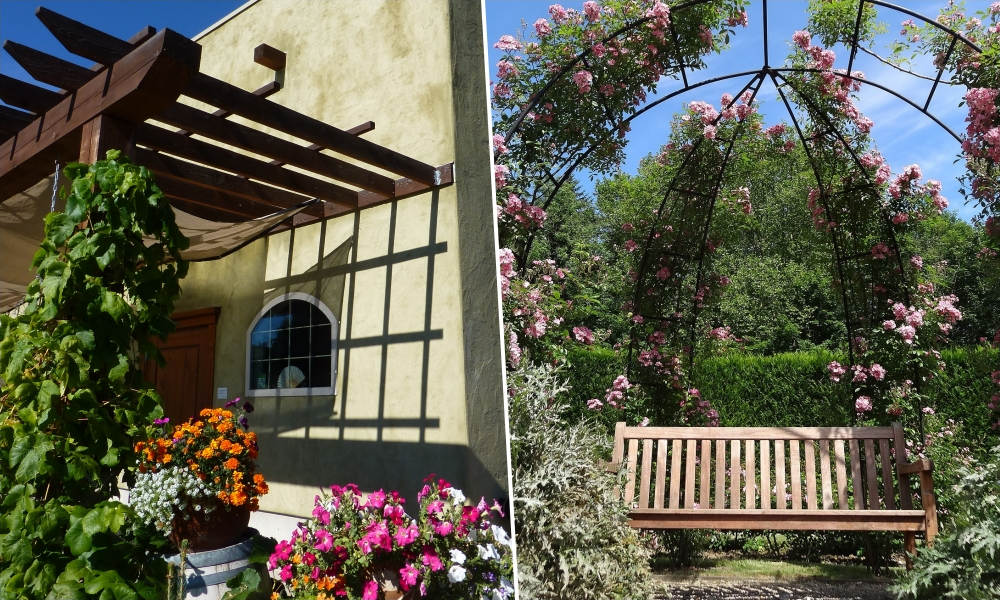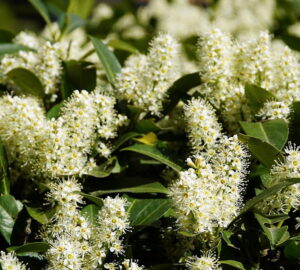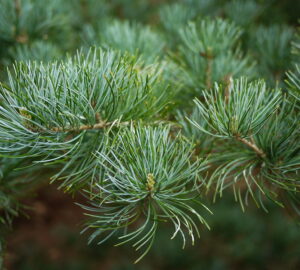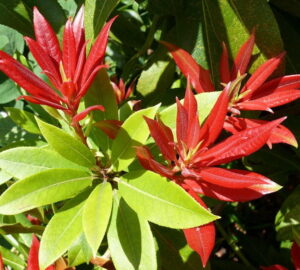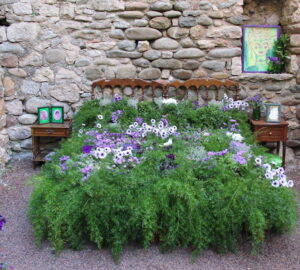When it comes to selecting a pergola for your outdoor space, the choice between wood and metal can be a pivotal one. In this article, we explore the advantages and disadvantages of wooden and metal pergolas, empowering you to make an informed decision based on factors such as aesthetics, durability, maintenance and budget, to create the perfect sanctuary in your garden.
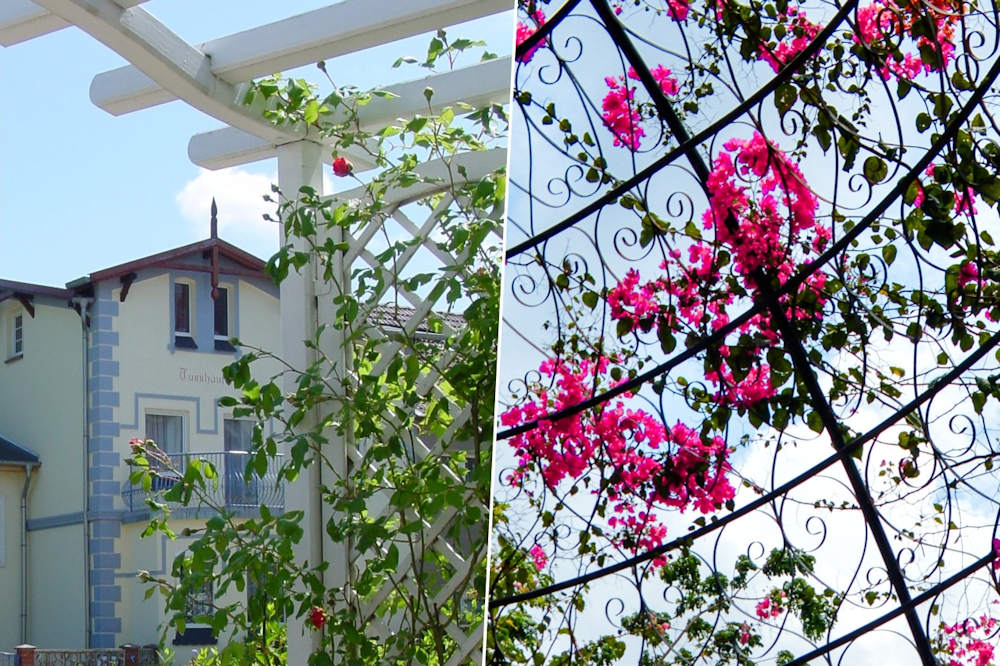
Here’s a breakdown of each option:
Wooden Pergola
Advantages
- Aesthetic appeal: Wooden pergolas provide a natural and rustic look that can blend well with various garden styles and landscapes.
- Customizability: Wood is highly versatile, allowing for various design options, shapes and sizes. It can be easily cut and shaped to fit specific preferences.
- Easy to work with: Wood is a commonly available material, and many gardeners are familiar with working with it. It can be easier to construct and modify compared to metal.
- Natural insulation: Wood provides better insulation than metal, helping to create a more comfortable environment beneath the pergola during hot or cold weather.
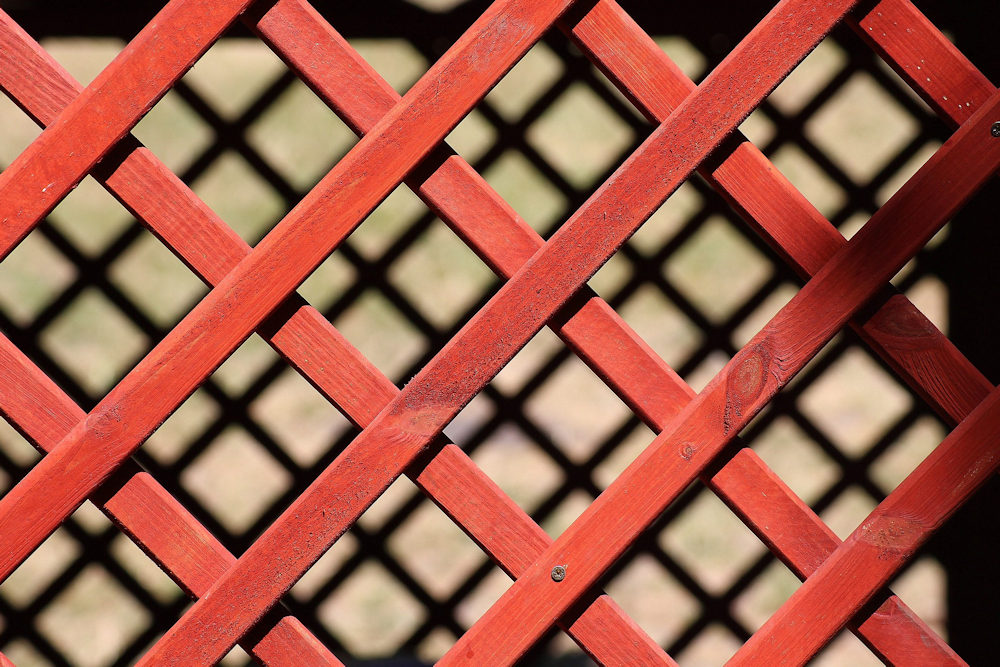
Disadvantages
- Maintenance requirements: Wooden pergolas typically require more maintenance compared to metal ones. Regular staining, sealing or painting is often necessary to protect the wood from weathering, rot and insect damage.
- Durability: Wood is susceptible to decay, rot and insect infestation, even with proper maintenance. Over time, it may warp, split or lose its structural integrity.
- Cost: Depending on the type of wood used, a wooden pergola can be more expensive initially than a metal one. Additionally, ongoing maintenance costs should be considered.
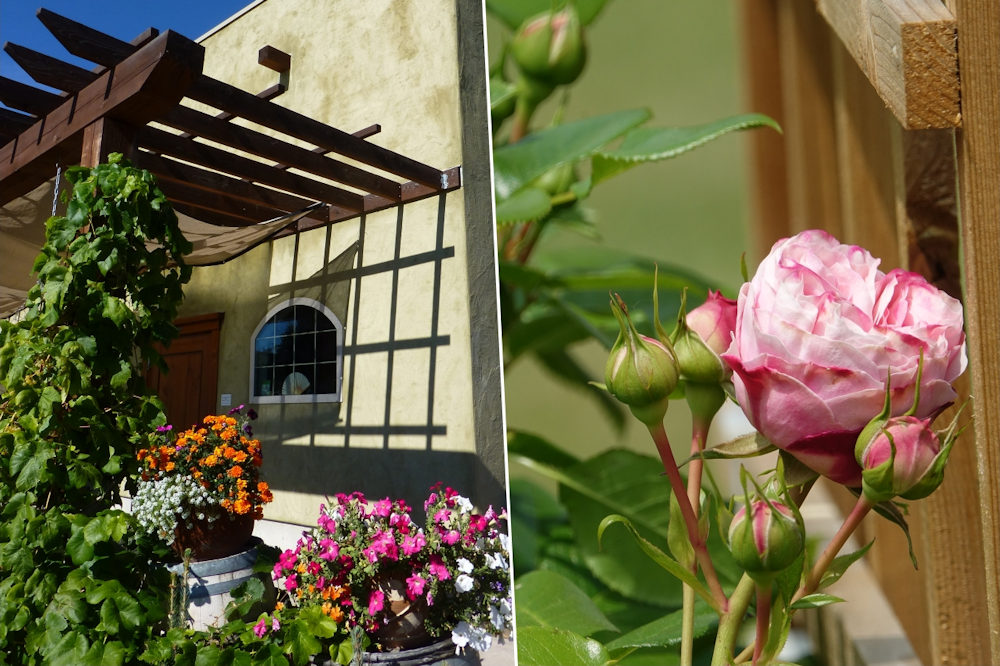
Metal Pergola
Advantages
- Durability: Metal, such as aluminum or steel, offers superior durability compared to wood. It is resistant to rot, decay and insect damage. It can withstand harsh weather conditions, including strong winds.
- Low maintenance: Metal pergolas generally require less maintenance than their wooden counterparts. They do not need staining or painting and are not prone to warping or splitting.
- Longevity: Metal pergolas have a longer lifespan than wooden pergolas. With proper care, they can last for many years without significant degradation.
- Structural strength: Metal pergolas can provide better structural strength, making them suitable for supporting heavier vines or climbing plants.
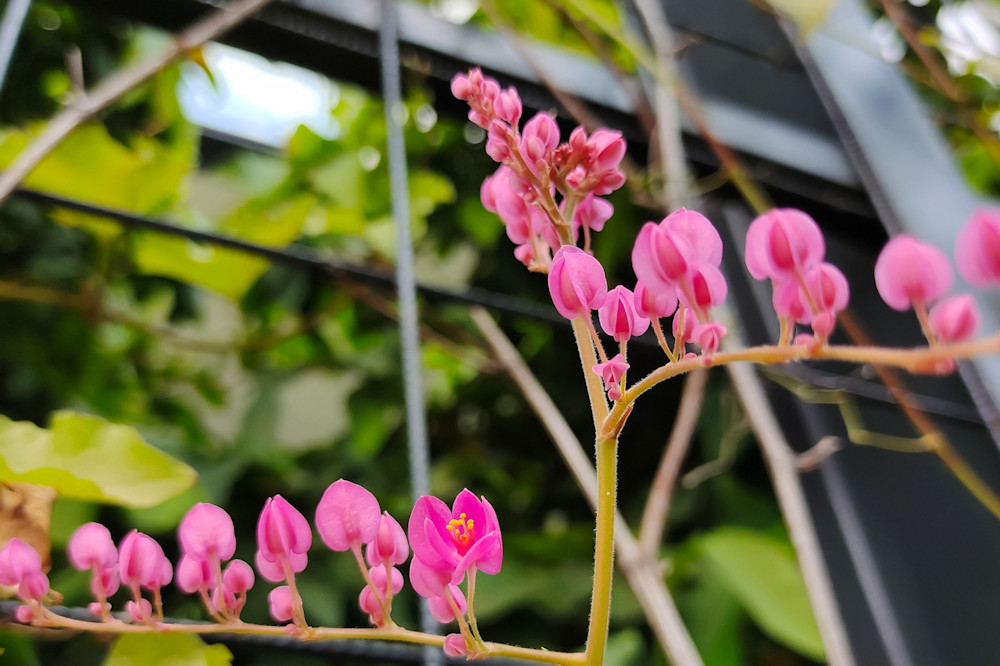
Disadvantages
- Heat absorption: Metal can absorb and radiate heat more than wood. This may result in a warmer environment beneath the pergola during hot weather.
- Limited design options: While metal can be shaped and customized to a certain extent, it may have fewer design options compared to wood, which offers more flexibility.
- Aesthetics: Some gardeners may prefer the natural and warm appearance of wood over the industrial or modern look of metal.
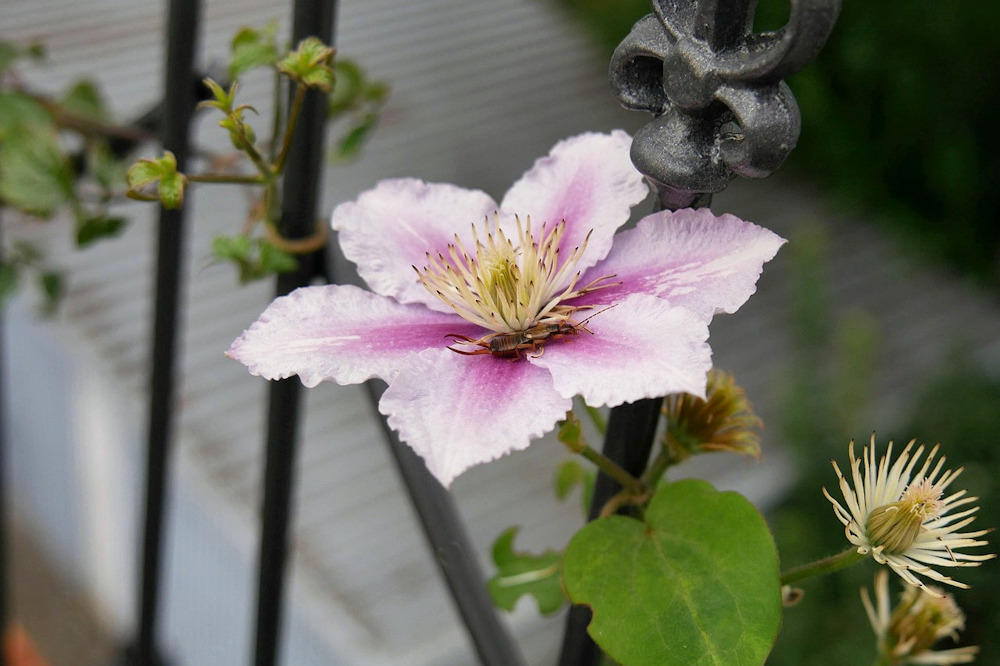
When deciding between a wooden or metal pergola, you should consider factors such as their aesthetic preferences, desired maintenance level, budget and the climate conditions in their area. By weighing these advantages and disadvantages, you can make an informed choice that aligns with your specific needs and preferences.
